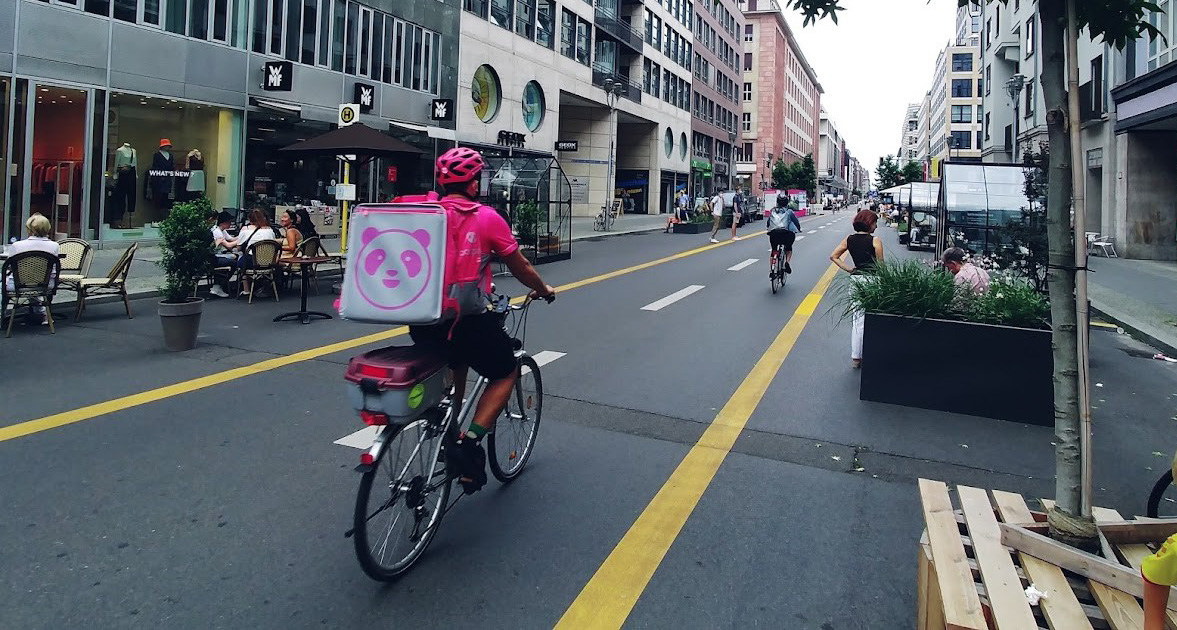- In his new book "Bicycle City," Dan Piatkowski argues for going "car-lite" as a more realistic and achievable goal than car-free cities. (Planetizen)
- Children born in a low-emission zone are 13 percent less likely to have asthma, according to a new German study. (Medical Xpress)
- Electrifying the nation's bus fleet would produce massive environmental and health benefits, a Carnegie Mellon study says. (Streetsblog USA)
- Even back in the 1950s, urbanist Jane Jacobs was an avid cyclist and an early critic of American car culture. (Common Edge)
- The Brookings Institute has a new hub to track federal infrastructure grants.
- Streetsblog alum Angie Schmitt wrote an eyewitness account of a Greyhound passenger attacking a bus driver. (Unpopular Opinions)
- The National Highway Safety Administration opened an investigation into Waymo after one of its driverless cars was caught on video in San Francisco swerving into oncoming traffic to avoid a unicyclist. (Jalopnik)
- A study found that Massachusetts transit agencies need better funding and more rural service (New Hampshire Public Radio, Commonwealth Beacon).
- Despite Austin's opposition to widening I-35, a regional planning board dominated by suburban counties voted against freezing funding for the project. (KUT)
- Houston turned a massive parking lot into a 37-acre park that also helps with stormwater drainage. (Fast Company)
- A new task force report reveals the contradiction between building new highways and Minnesota's carbon emissions goals. (MinnPost)
- An Indianapolis city councilor is introducing Vision Zero legislation. (WISH-TV)
- Seattle's first fully protected intersection is now open. (Seattle Bike Blog)
- The Omaha streetcar's design is 90 percent complete, and the city placed an order for six cars. (3 News Now)
- Connecticut's e-bike rebate program could move to a lottery system, as there were 6,400 applications for just 470 vouchers last year. (Government Technology)
Today's Headlines
Thursday’s Headlines Taste Great and Are Less Filling
Is shooting for "car-lite" cities a more realistic goal than "car-free"? One author thinks so. Either way, new evidence suggests that less exposure to emissions lowers the risk of asthma.

A car-free street in Berlin. Photo: Ralph Buehler.
Stay in touch
Sign up for our free newsletter
More from Streetsblog USA
Why Is the Governor of New York Trying to Make It Easier to Deny Traffic Violence Victims Insurance Payouts?
The governor is still fighting to make it cheaper to drive with a reform that would reduce compensation to some crash victims.
Study: Most Of America’s Paint-Only Bike Paths Are On Our Deadliest Roads
Even worse, most Americans see these terrible lanes and think, "I'd be crazy to ride a bike" — and the cycle continues.
Monday’s Headlines Take a Walk on the Not-So-Wild Side
Research increasingly shows that walkability, active streets and greenspace in cities contribute to mental well-being.
Friday’s Headlines Are Over ICE
Traffic safety and transportation funding continue to get tangled up in immigration enforcement under Trump.
Talking Headways Podcast: Women Changing Cities
Chris and Melissa Bruntlett on their new book and the mobility of care work and the unpaid labor that undergirds the economy.





